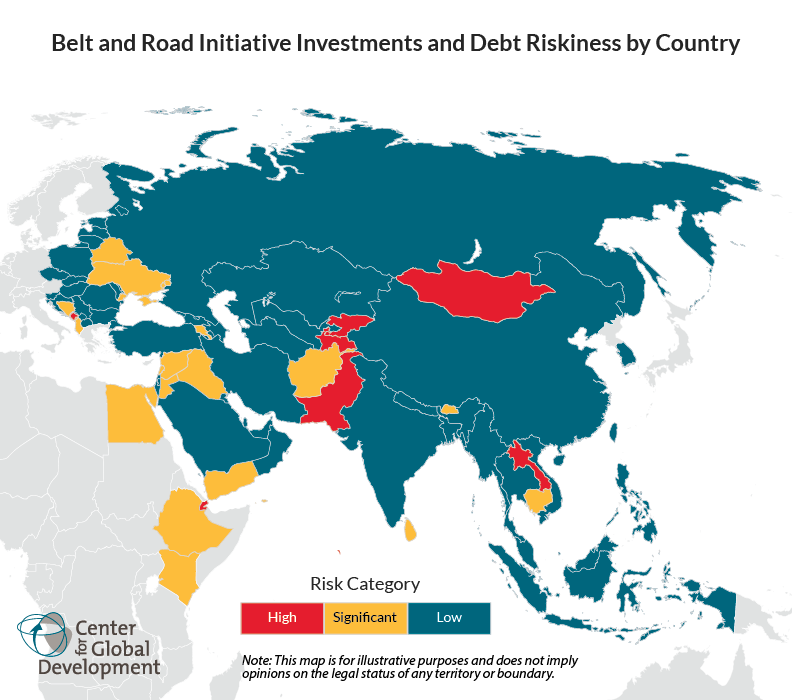CGD research has become Exhibit A virtually every time the charge of “debt trap diplomacy” has been leveled against China in the media this past year. Yet, our research shows that many of China’s borrowers are managing their debts just fine and seem unlikely to fall into any traps. For the smaller number of countries that are vulnerable to debt crises and are borrowing a lot from China, the debt trap label remains problematic, because we don’t necessarily have a smoking gun to point to in ascribing these motives to Chinese officials.
I am comfortable saying that China’s lending to Djibouti is proceeding with indifference to debt sustainability and appears to be tied to broader Chinese aims in the tiny but strategically well-positioned country. So, maybe Chinese officials are in fact attempting to push Djibouti into a debt crisis in order to extract other concessions—aka “debt trap diplomacy.” But it’s not as if we have a Chinese policy document that articulates such a strategy, and it seems implausible that we would ever see such a policy set out in writing.
Imagine my surprise then in coming across a historical instance of just such a document, private at the time of its writing, but laying out a policy strategy for dealing with an adversarial population:
… to exchange lands which they have to spare & we want, for necessaries, which we have to spare & they want, we shall push our trading houses, and be glad to see the good & influential individuals among them run in debt, because we observe that when these debts get beyond what the individuals can pay, they become willing to lop th[em off] by a cession of lands. at our trading houses too we mean to sell so low as merely to repay us cost and charges so as neither to lessen or enlarge our capital. this is what private traders cannot do, for they must gain; they will consequently retire from the competition…
If this strategy were authored by a Chinese official, it would confirm our worst fears of debt trap diplomacy. Yet, the author was President Thomas Jefferson in 1803, communicating with William Henry Harrison, then governor of the Indiana territory. The problem before Jefferson was how to extract land from Native American tribes without provoking hostilities and to do so while maintaining the pretense of a friendly relationship. His method: using the guise of a commercial relationship to make the tribes financially vulnerable. It’s particularly striking that he anticipated that truly commercial actors (the private sector) would be driven out of this task, leaving the government to proceed as it wished.
Of course, there is no positive lesson to take from this episode, nor the longer history of the US government’s role in extracting ever greater masses of land from Native American tribes, sometimes through compensation and treaty, often through violations of those treaties, and more often still through violence.
Is China taking a page from Thomas Jefferson’s play book? Maybe so. Could we have greater awareness and humility about our own track record in this behavior? Absolutely. This does not let China off the hook. But greater circumspection, which can sometimes come through observing the same bad behavior in others, might motivate better attitudes toward redressing past wrongs, however long ago they may be.
(And for your holiday reading, consider Dee Brown’s classic Bury My Heart at Wounded Knee, or Daniel J. Sharfstein’s Thunder in the Mountains, a new and excellent biographical treatment of the Nez Perce war.)
CGD blog posts reflect the views of the authors, drawing on prior research and experience in their areas of expertise.
CGD is a nonpartisan, independent organization and does not take institutional positions.






